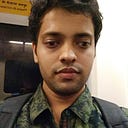Pulwama: Let this horrific attack lead to solidarity and constructive discussion
On February 14, a member of the terrorist Jaish-e-Mohammed group drove a vehicle laden with explosives into a CRPF vehicle in Kashmir’s Pulwama district, killing (at least) 40 soldiers. The horror of the incident was so profound that we see a rare solidarity between political parties, Right and Left intellectuals and commoners, and between interest groups that is quite heartening.
Yes, there are some cracks in this show of solidarity, such as this despicable post by an NDTV deputy news editor (who’s since been suspended). Meanwhile, some right-wing news channels are already using the incident to attack the Opposition.
But overall, I sense a realisation that the magnitude of evil in this attack is far greater than the vehemently opposite worldviews of my fellow Indians. How long this solidarity endures will be key to whether we can move from the polarised, identity politics-ridden polity we have become to a polity which engages in dialogue between ourselves, to find constructive solutions to the problem of neighbour-funded terrorism.
But to begin — one must start by engaging each other about what has happened in Pulwama. In the political sphere, three ingredients are necessary, which were perfectly pointed out by (a little surprisingly) the left-wing psephologist Yogendra Yadav. Here is his tweet:
But I fear that once a few days pass since this horror, this solidarity is likely to crumble, and none of Yadav’s three points are likely to be put into practice.
Will the government take the Opposition into confidence and share its strategy? Rather, will THIS government ever do it? During the Vajpayee NDA dispensation, Point 1 was often default practice. With NDA-2, we just don’t know. I dearly hope the BJP will not find it in itself to take the moral high ground (?) and blame 60 years of Congress rule, or keep documents classified even when there is no reason to do so.
Will the Opposition keep harping on how the BJP’s claim that there have been no terror attacks during its tenure stands belied (as though it was not a ridiculous claim to begin with)? Will there be rallies against the government, falsely billed as “Jan Aakrosh” or something similar, where the Opposition attempts to make the public aware about the government’s poor record on tackling terrorism of the Islamist variety? Thankfully, there are no longer any Parliament sessions to disrupt with sloganeering before the Lok Sabha elections.
All this leads to Point 3 — will this attack be made an election issue? Unfortunately, on this one, I can say “yes” with near-certainty. Why would the BJP not use it to attack the “Azaadi” Left, and the Opposition’s indirect alliance with this group? Why will it not use this attack to drive home the point to voters that 1) We need more force in Kashmir, not less, and 2) That the Opposition and left-leaning intellectuals are just a bunch of anti-nationals and Naxalites?
Why will Congress not use the attack to justify its claim that the terrorist problem has grown worse in 5 years of BJP rule? Why will Congress not make jokes about the “56-inch chest” and declare that the BJP’s strategy in Kashmir has failed, all the while ignoring that the problem of militancy festered and festered when it was in power for…55 years?
So, I hope against hope that what will shall see is a coming together of political minds, less abuse and labelling on social media and more real discussion. But this shall not happen until we (all of us, the politicians, the intellectuals on both sides and the everyday citizen) understand that identity politics — which merely aims to secure its share of the pie — needs to be overthrown in favour of cooperation and dialogue. None of us stand to gain in the long term either from labeling our fellow Indians anti-nationals, or from drawing ever closer to the “Azaadi” school of thought.
No amount of cooperation and dialogue among laypersons will, of course, provide tangible solutions to the terrorism problem, because laypeople are simply not much in the know about military realities, socioeconomic realities, technical solutions, geopolitical constraints and the like. Here, cooperation among politicians is what is likely to work. But isn’t politics a reflection of society?
Rather, in our post-truth age (for which the Left is as culpable as the Right), isn’t society a reflection of politics? Aren’t we being influenced and diminished into indoctrinated individuals by unscrupulous political agendas that we fail to see?
What I am driving at is this — all of us, whether on the Left or Right, liberals or conservatives, pacifists or not, should use this horrible incident to evolve an understanding of the other’s positions, seek to find common ground and reduce our mutual hatred and disgust of each other. When society thus changes, politics too will be forced to transform. Then, we need not be political or military strategists, foreign relations experts or mass leaders. We could use the social capital we have gained to pressure the politicians into taking the right, and best possible, actions to combat terrorism.
The future now depends on whether we see this terrorist attack as another reason to drive us apart, or a chance to bring us together — and end the scourge of identity politics-driven hatred that is breaking our society.
